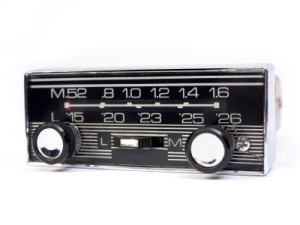Blog to Broadcast Your Stance Along With Your Brand
If you’re to enjoy any success in content marketing through business blogging, I’m convinced, three things need to happen:
- Readers perceive you as an expert in your field
- Searchers see your blog as a go-to source for ongoing information
- You clearly state a perspective
All too often, I find, that third factor isn’t paid the attention it deserves. As a corporate blogging trainer, I remind newbie writers that there’s no lack of information sources – and no lack of experts (purported OR real). In our blogs, therefore, we need to go beyond presenting facts, statistics, features and benefits, and broadcast a firm stance. Doing that not only presents you as being that much more authentic, I explain to writers – it helps readers put all that information into perspective.
Since this week’s Say It For You posts are based around radio commercials, I’ll use the Weather Tech ad as a great example of “stance” and authenticity. “Does it really matter where a product is made?” the narrator asks. Yes, it does, it matters a lot, he continues. “Providing American workers with good jobs allows people to buy things, and that’s good for our economy.” The WeatherTech tag line ends the commercial: “Complete protection, completely American made.”
I like that ad. I like it a lot, as a matter of fact. No question there’s a real person in there with a real, strongly-held point of view. Yet, far from coming off as a “because-I-said-so” statement, the ad explains the reasoning behind the owner’s point of view.
Friend and fellow blogger Phil Steele laments that too many business blogs serve as extended advertisements, and suggests that business blog writing would be better aimed at taking a bird’s-eye view of one’s industry, and only then relating back to one’s own business. That rule is important for any business, I find, but it’s even more important for doctors, accountants, lawyers, life coaches, and others offering personal services, who need to use their blog to explain their unique approach in their area of practice.
Blog to broadcast your stance along with your brand!





Follow us online!